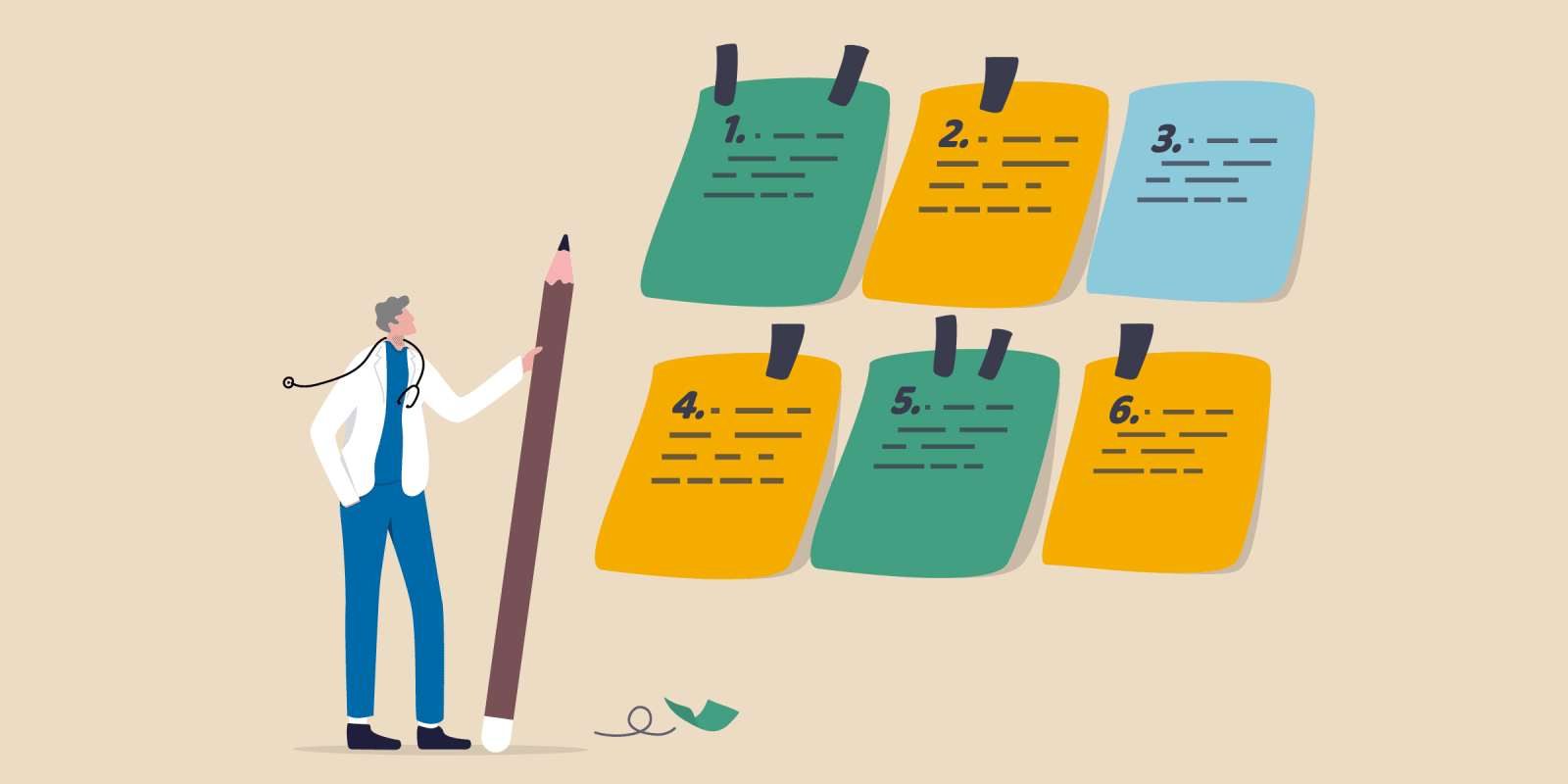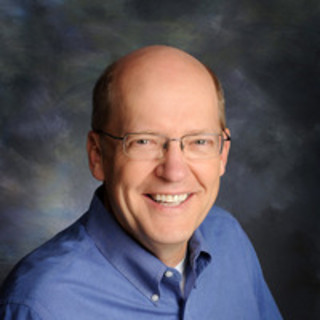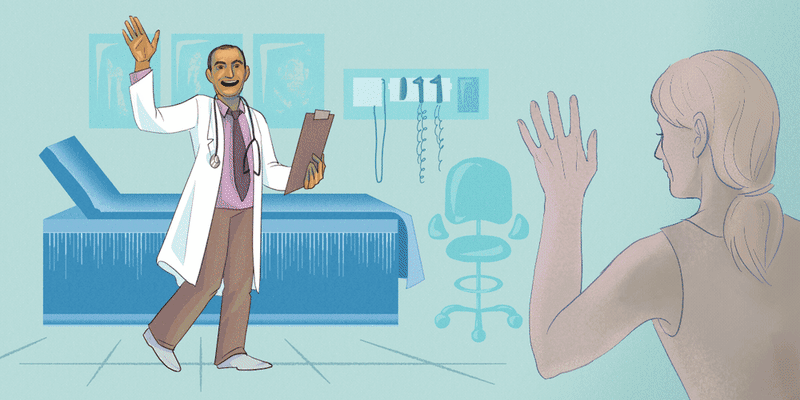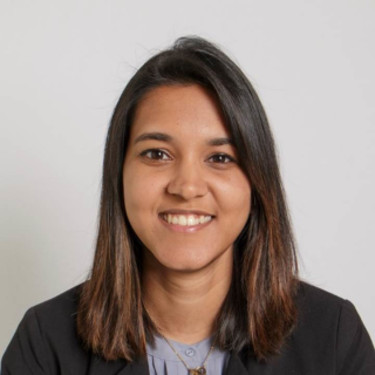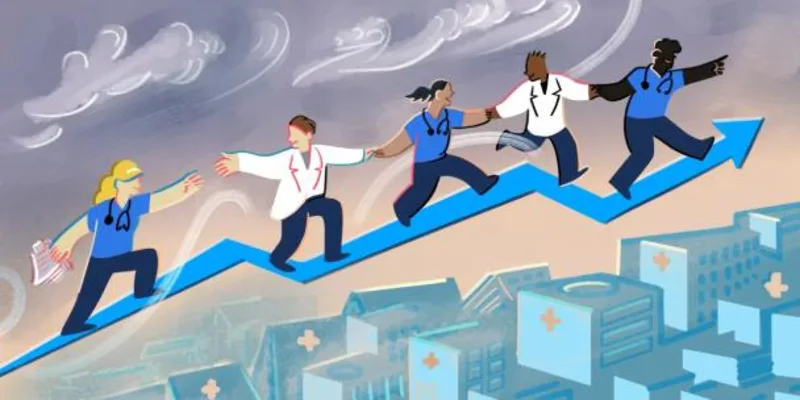I can’t imagine any medical student starting their clinical rotations without having heard the saying, “When you hear hoofbeats, think horses, not zebras.” And as I was gearing up for my internship, Shem Saul’s advice from his classic book “The House of God” resonated: “Every intern makes mistakes. The important thing is to neither make the same mistake twice nor to make a whole bunch of mistakes all at once.” It’s not that these sayings get one through the day or week — or career even, but they are rather utilitarian and applicable in so many instances. So much so I’d like to share 10 of my favorites, two of my own creation, the rest borrowed.
1. “The sight of blood should concern you. The sound of blood should alarm you.” Regardless of a patient’s appearance, mental status, or vital signs, the sound of blood falling to the floor is a clarion call for immediate action. Not used often, this saying is about as efficient as it gets.
2. “Everything that happens only once can never happen again. But everything that happens twice will surely happen a third time.” This pearl comes from Paula Coelho’s novel “The Alchemist.” For me, it would occasionally come in handy when reviewing informed consent with a patient and the question of a recurrence would arise. Like a lot of sayings, its beauty lies in its simplicity.
3. “We’re only as happy as our saddest child.” Many times, during an annual exam, a patient would exhibit a mood change that upon further questioning was related to a recent event in a child’s life — the loss of job, marital discord, any number of things. I oftentimes found this saying helpful in facilitating further probing and determining the extent of any depression.
4. “A son is a son until he takes a wife, a daughter is a daughter the rest of her life.” One of the joys of practicing medicine and experiencing patient continuity, is observing and perhaps even being a part of the milestones in a patient’s life. Annual exams are not all about detecting altered physical findings or trending labs. They are about sharing dreams and aspirations, waiting patiently while your patient scrolls through her phone to show you the latest family photo. It was common for a patient who now had a daughter-in-law to lament about the newfound distance between her and her son. I found this saying to be beneficial in helping my patient cope with the changes in her life and coming to the realization she had spent close to 20 years raising her son to be a good husband, and she had succeeded.
5. “One indication for performing an ultrasound at the time of any prenatal visit is the presence of the patient’s mother in the exam room. It rises to an absolute indication if it’s the patient’s mother’s first grandchild or she traveled from out-of-state.” This tongue-in-cheek advice contains a nugget of insight into the anticipation of becoming a mother or grandmother for the first time. A large part of the joy we create and share comes from never overlooking these simple opportunities to make someone else’s day special.
6. “Your patients don’t care how much you know until they know how much you care.” This gem embraces the human trait of empathy and distills it to its essence. For many, empathy is innate. For others, the characterization and demonstration of empathy is all that is needed for them to begin to embrace it.
7. “If your outgo exceeds your income, your upkeep will be your downfall.” Mentoring takes teaching to the next level and an integral part of that process and relationship is instilling the tenets of fiscal responsibility in those we strive to help. This is especially important with the seemingly endless Facebook posts revealing all that money can buy without revealing the hidden consequences of actually purchasing all that money can buy.
8. “The careful application of terror is also a form of communication.” The best example of this for me was the weekly Morbidity and Mortality (M&M) case conference during residency. Learning comes in all shapes and sizes, and the lessons we learn are seldom forgotten especially if the communication of that learning is associated with a significant amount of anxiety or angst.
9. “Good judgment comes from experience; experience comes from bad judgment.” This morsel of insight was also a by-product of our weekly M&M case conference during residency. By the time one has a few years under his or her belt, the transition from bad judgment to good judgment hopefully will have been made.
10. “The cost of learning is expensive no matter where you are or how you get your education.” I first heard this universal tidbit from my father after my failed attempt to adjust the timing on the engine of my first car as a teenager. My inexperience resulted in a repair bill I could hardly afford at the time. It’s indeed true that so many of the lessons we learn in life come with an expense that far exceeds the tuition paid to the business office. Our goal should be to keep the cost of our education to a minimum.
The opportunities to share one’s experience — dare I say even wisdom — can oftentimes be crystallized into simple yet insightful truisms that perfectly capture the moment as it unfolds, hopefully serving as a catalyst for continued teaching.
What sayings have helped guide your career? Share yours in the comment section.
Lloyd Holm is a retired obstetrician who lives in Cottage Grove, Minnesota with his wife, Gretchen. He has authored two novels and a children’s book and his writings have appeared in the Omaha World Herald, The Female Patient, Iowa Medicine, Contemporary OB/GYN, Hospital Drive, the American Journal of Obstetrics and Gynecology, and Obstetrics and Gynecology. While a member of the teaching faculty at the University of Nebraska Medical Center in Omaha, he received the Dean's Award for Excellence in Clinical Education and The Hirschmann Golden Apple Award. Dr. Holm was a 2021-2022 Doximity Op-Med Fellow and a 2022-2023 Doximity Op-Med Fellow.
Image by Nuthawut Somsuk / Getty Images
